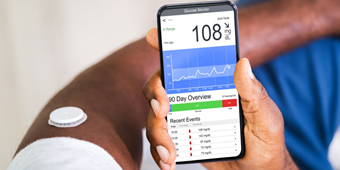Diabetes Drug’s New Fame For Weight Loss Causes Shortage

Answer a few questions and we'll provide you with a list of primary care providers that best fit your needs.
Ozempic is a weekly injectable medication approved by the U.S. Food and Drug Administration (FDA) to regulate blood sugar levels if you have type 2 diabetes. In addition, it can help lower risk of a stroke or heart attack.
However, the diabetes drug has gained notoriety for another of its benefits. It has become the weight loss drug of choice among Hollywood stars and social media influencers. As a result, the demand for Ozempic has skyrocketed and resulted in a nationwide shortage that has been problematic for those who need it most. Actor Anthony Anderson, who has type 2 diabetes, recently brought attention to the shortage.
Premier Health Now had the opportunity to speak with diabetologist Miguel Parilo, MD, to learn more about how a drug used to treat diabetes has become sought after as an aid for weight loss.
Haves and Have-Nots
Though Ozempic gets all the headlines, it’s actually one of several in a class of drugs known as glucagon-like peptide-1 (GLP-1) agonists. These medications contain an ingredient that helps produce insulin, lower blood sugar levels, and control appetite.
Another GLP-1, Wegovy, has gained FDA approval to treat obesity. It, too, is in limited supply, thanks in part to an endorsement by Elon Musk.
“The scarcity of these medications has been a real concern, as some diabetic patients simply have to go without,” Dr. Parilo says. “It’s a problem because this class of drugs has a very profound effect on diabetes control as well as with obesity. So having to forego those important treatments increases the potential of other problems as they switch to other less-effective therapies.”
Though GLP-1 medications may be a useful tool in the battle against obesity, Dr. Parilo urges caution against the Hollywood trend that seems to advocate it as a way to shed a few pounds.
“What people should understand is that as long as this medication remains scarce, there are many people with chronic health conditions who simply can’t get access. This is a significant issue, especially when you consider that an inability to control blood sugar greatly increases a patient’s risk of cardiovascular disease.”
It is uncertain whether the high demand for the drug will continue, or if it will die out like many other pop culture fads. Either way, Dr. Parilo remains optimistic that drug manufacturers will eventually make a way to increase production to meet the current demand.
Answer a few questions and we'll provide you with a list of primary care providers that best fit your needs.
Source: Miguel Parilo, MD, Bull Family Diabetes Center; People




